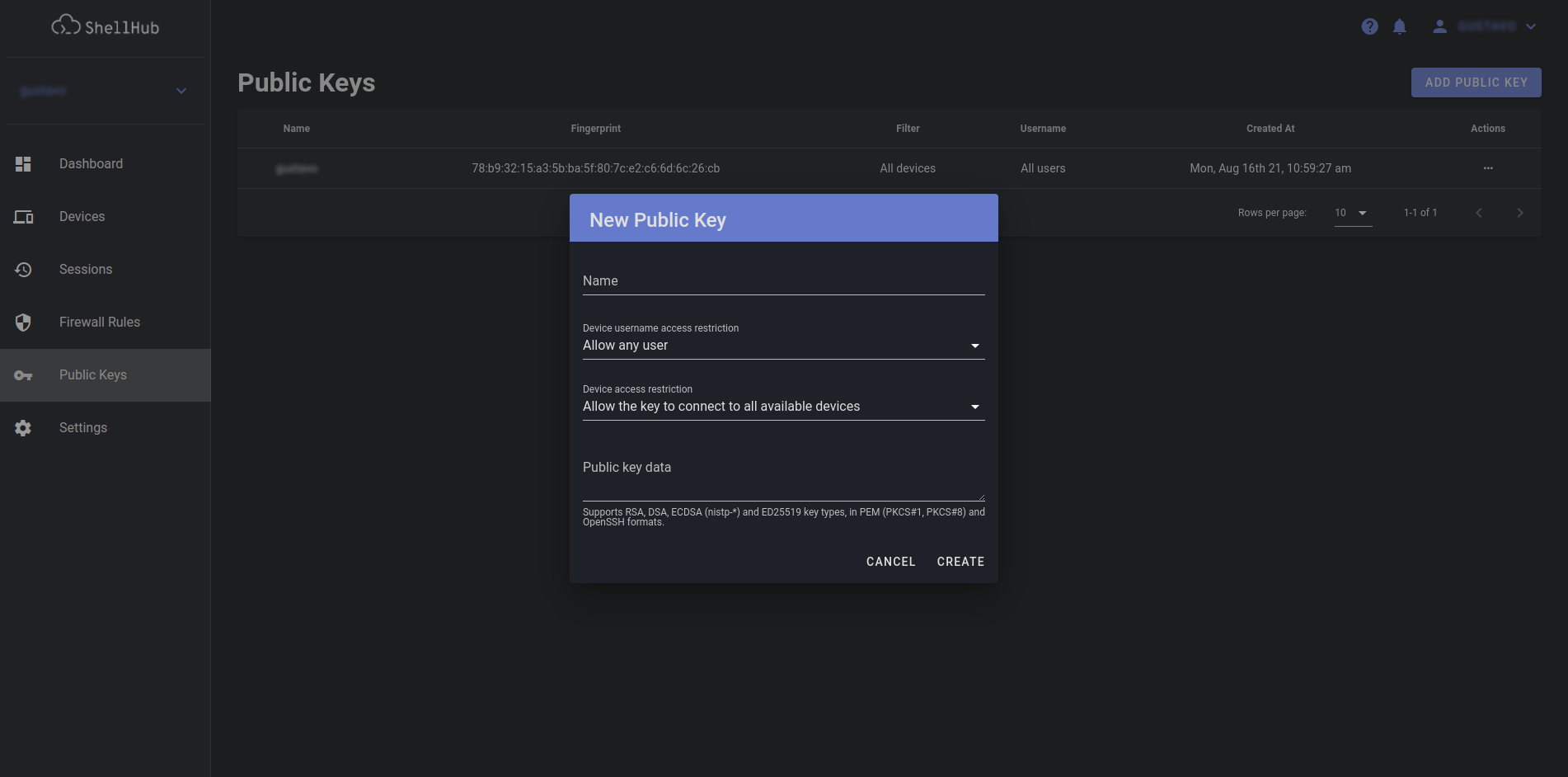Using Public Key authentication
Public Key authentication is a way of logging into an devices using a cryptographic key rather than a password which is the default method most SSH clients use to authenticate with remote devices, but it suffers from potential security vulnerabilities like brute-force login attempts.
Using key-based authentication offers a range of benefits:
- Allow multiple developers to log in as the same system user without having to share a single password between them.
- Revoke a single developer's access without revoking access by other developers.
- Make it easier for a single developer to log in to many accounts without needing to manage many different passwords.
Creating a SSH key pair
You can generate a new SSH key on your local machine by using the ssh-keygen
utility from the OpenSSH suite.
Run the following command in your terminal:
ssh-keygen -t ed25519
This command may overwrite an existing key with the same name.
Add a public SSH key
After you create an SSH key pair, you can upload your public key to ShellHub.
It’s safe to share your SSH public key to anyone because it cannot be used to re-create the private key. It can only be used to validate the user who holds the associated private key (which should never be shared).
From the Public Keys page, click on Add Public Key button and fill the form.
